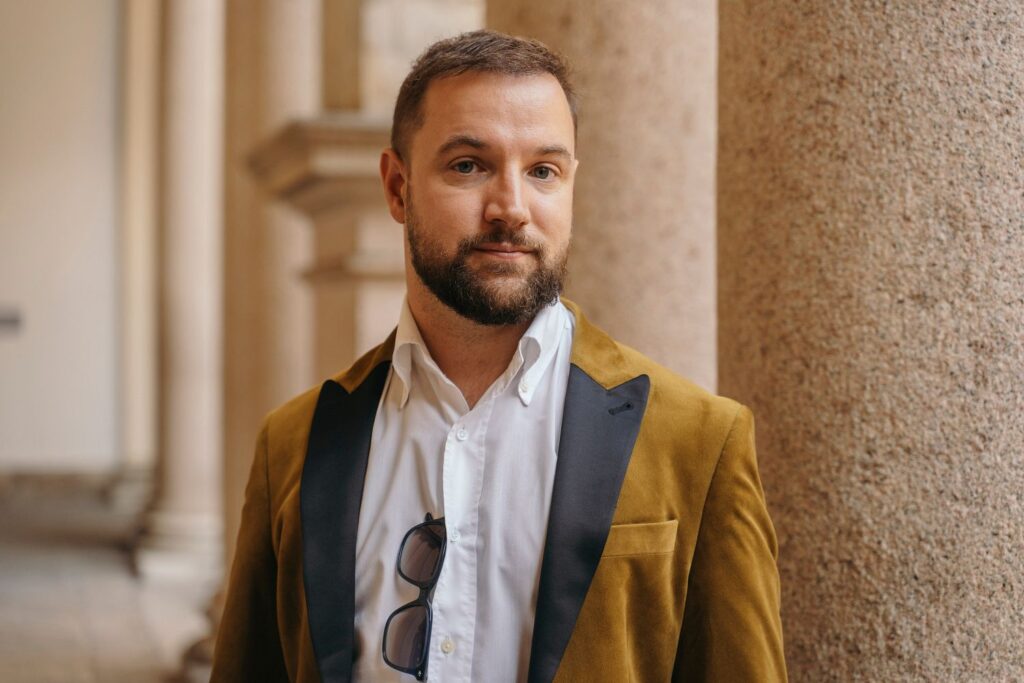Luxury shoppers now spend over 70 percent of their research time online before purchasing. Digital strategy for luxury brands has moved far beyond simple advertising, turning every digital touch into a chance to make consumers feel seen and valued. The right approach weaves together technology, storytelling, and exclusivity to shape unforgettable brand experiences that match the expectations of the most discerning clients.
Table of Contents
- Defining Digital Strategy For Luxury Brands
- Consumer Psychology In Luxury Marketing
- Omnichannel Experiences And Personalization
- Leveraging Technology And Innovation Trends
- Risks, Pitfalls, And Compliance Challenges
Key Takeaways
| Point | Details |
|---|---|
| Digital Strategy | Luxury brands should create immersive, personalized experiences that reflect their exclusivity through seamless omnichannel integration and data-driven personalization. |
| Consumer Psychology | Understanding emotional and social motivations is crucial; leverage psychological triggers like exclusivity and social proof to connect with high-end consumers. |
| Omnichannel Personalization | Aim for fluid, integrated customer journeys across digital and physical touchpoints using real-time data and personalized experiences to enhance loyalty. |
| Compliance and Risks | Addressing data privacy and protection is essential; develop robust strategies that reinforce consumer trust while enabling innovative marketing. |
Defining Digital Strategy For Luxury Brands
A digital strategy for luxury brands transcends traditional online marketing by creating immersive, personalized experiences that mirror the exclusivity and sophistication of premium brands. According to research from Springer, sustainable digital marketing in luxury contexts now involves integrating technological innovations with strategic online community engagement.
The core elements of an effective luxury digital strategy include:
- Creating seamless omnichannel experiences
- Developing mobile-responsive interfaces
- Leveraging advanced social media storytelling techniques
- Implementing data-driven personalization technologies
Luxury brands must approach digital strategies as an extension of their brand narrative. Discover our guide on understanding luxury brand storytelling to see how digital platforms can amplify your brand’s unique voice. Research indicates that successful luxury digital strategies go beyond transactional interactions, focusing instead on building emotional connections through curated digital experiences that reflect brand heritage and contemporary consumer expectations.
The ultimate goal is transforming digital touchpoints into sophisticated brand interactions that feel as exclusive and refined as an in-person luxury encounter. By combining technological innovation with meticulous brand storytelling, luxury brands can create digital ecosystems that attract, engage, and retain discerning high-net-worth consumers across global markets.
Consumer Psychology In Luxury Marketing
Consumer psychology in luxury marketing represents a sophisticated exploration of how high-end consumers make purchasing decisions through complex emotional and social motivations. According to research from EWA Direct, luxury marketing strategies strategically leverage cognitive biases by understanding the psychological mechanisms that drive consumer behavior, particularly through techniques of exclusivity, scarcity, and social validation.
Key psychological triggers in luxury marketing include:
- Creating a sense of exclusive belonging
- Utilizing social proof mechanisms
- Generating emotional resonance
- Designing experiences that communicate status and identity
Explore our insights on consumer behavior in luxury markets to understand the nuanced psychological drivers behind premium purchasing decisions. Research from academic sources highlights how digital platforms have transformed conspicuous consumption, with consumers now deriving social meaning and community affiliation through digital signals of wealth and taste, particularly evident in emerging spaces like NFT markets.
Ultimately, successful luxury marketing transcends traditional transactional approaches by crafting narratives that connect deeply with consumers’ aspirational self-image. By understanding the psychological underpinnings of desire, luxury brands can create compelling experiences that transform products from mere commodities into powerful symbols of personal identity and social distinction.
Omnichannel Experiences And Personalization
Omnichannel experiences in luxury marketing represent a sophisticated approach to creating seamless, integrated customer journeys across digital and physical touchpoints. According to research from ESSEC Business School, modern luxury brands are pioneering clienteling 2.0 strategies that transform traditional customer interactions into personalized, adaptive experiences that enhance brand loyalty and engagement.
Key components of effective omnichannel personalization include:
- Seamless integration between online and offline channels
- Real-time data synchronization
- Personalized customer journey mapping
- Adaptive digital and physical interaction points
Explore our guide to understanding luxury brand experiences to dive deeper into creating cohesive customer journeys. Research from Springer highlights that successful digitalization strategies for luxury brands, especially targeting millennial consumers, require a strategic approach that goes beyond simple transactional interactions and focuses on creating immersive, interconnected brand experiences.
The ultimate goal of omnichannel personalization is to create a fluid, intuitive ecosystem where each customer interaction feels uniquely tailored, whether through a mobile app, in-store consultation, social media engagement, or personalized digital communication. By leveraging advanced technologies and deep consumer insights, luxury brands can craft experiences that not only meet but anticipate customer expectations, transforming traditional marketing approaches into dynamic, responsive brand interactions.
Here’s a comparison of key elements in luxury digital strategy, consumer psychology, and omnichannel personalization:
| Focus Area | Main Objectives | Key Methods |
|---|---|---|
| Digital Strategy | Amplify brand voice Create immersive experiences |
Omnichannel integration Personalization Social storytelling |
| Consumer Psychology | Inspire desire Build social status |
Exclusivity Scarcity Emotional resonance |
| Omnichannel Personalization | Seamless journeys Heighten loyalty |
Online-offline sync Clienteling Real-time data |
Leveraging Technology And Innovation Trends
Luxury brands are increasingly transforming their digital strategies through cutting-edge technological innovations that redefine consumer engagement. According to research from Glion Institute of Higher Education, contemporary luxury brands are strategically adopting advanced technologies to create immersive experiences that seamlessly blend physical and digital interactions.
Key technological innovation trends for luxury brands include:
- AI-powered personalized services
- Blockchain and Web3 digital collectibles
- Enhanced transparency through technological integration
- Immersive augmented and virtual reality experiences
Explore our insights on luxury marketing trends for 2025 to understand how emerging technologies are reshaping brand interactions. The most forward-thinking luxury brands are not merely adopting technology but reimagining how digital tools can create deeper, more meaningful connections with discerning consumers who expect sophisticated, personalized experiences.
The future of luxury technology lies in creating intelligent, adaptive ecosystems that anticipate consumer desires before they are explicitly expressed. By leveraging artificial intelligence, advanced data analytics, and immersive digital platforms, luxury brands can craft experiences that are not just technologically advanced, but emotionally resonant and uniquely tailored to individual consumer preferences.
Risks, Pitfalls, And Compliance Challenges
Digital strategy in luxury markets involves navigating complex legal and ethical landscapes where data privacy and consumer protection become paramount concerns. According to research from academic sources, understanding and predicting online consumer behavior requires sophisticated approaches to data management that balance innovative marketing techniques with stringent compliance requirements.
Key compliance and risk management considerations include:
- Robust data protection protocols
- Transparent consumer consent mechanisms
- Rigorous cybersecurity infrastructure
- Ethical data collection and segmentation practices
- Comprehensive privacy policy frameworks
Explore our guide to understanding consumer behavior insights to gain deeper perspectives on managing digital risks. Research highlights that luxury brands must develop advanced clustering and segmentation strategies that respect individual privacy while delivering personalized experiences, requiring a delicate balance between technological innovation and regulatory compliance.
The most sophisticated luxury brands recognize that compliance is not a limitation but an opportunity to build trust and demonstrate respect for consumer privacy. By implementing proactive risk management strategies, brands can create digital ecosystems that are not only legally sound but also enhance brand reputation, customer loyalty, and long-term sustainable growth in an increasingly complex digital marketplace.
Unlock Elite Digital Strategies for Your Luxury Brand
Many luxury brands struggle to create truly seamless and emotionally engaging digital experiences that reflect their heritage and satisfy modern consumer expectations. If you want your brand to stand out in a crowded marketplace but worry about losing authenticity or failing to connect across every channel, you are not alone. The journey to an advanced digital strategy means translating exclusivity, personalization, and technological innovation into every customer interaction. Do not let your luxury brand risk falling behind when even small missteps in digital positioning can impact your market presence.
Take the next step toward elevating your brand with a partner who understands psychology-driven marketing, premium branding, and advanced technology. Explore our expertise in Marketing de la mode and see how we have helped other high-end brands achieve next-level performance.

The luxury market is more competitive than ever and your digital strategy must be both intelligent and emotionally resonant. Visit Corrado Manenti and discover how applied psychology, expert consulting, and the latest innovations can help you achieve a truly integrated luxury brand experience. Ready to transform your approach? Learn more about Positionnement numérique and start attracting high-value clients today.
Frequently Asked Questions
What are the key elements of a digital strategy for luxury brands?
An effective digital strategy for luxury brands includes creating seamless omnichannel experiences, developing mobile-responsive interfaces, leveraging advanced social media storytelling techniques, and implementing data-driven personalization technologies.
How does consumer psychology influence luxury marketing strategies?
Consumer psychology in luxury marketing involves understanding emotional and social motivations that drive purchasing decisions, utilizing triggers such as exclusivity, social proof, emotional resonance, and experiences that communicate status and identity.
What is an omnichannel experience in luxury marketing?
An omnichannel experience in luxury marketing involves creating integrated customer journeys across both digital and physical touchpoints, ensuring seamless interaction between online and offline channels while delivering personalized customer journey mapping and adaptive engagement.
How can technology enhance the digital strategy for luxury brands?
Technology can enhance digital strategies for luxury brands by enabling AI-powered personalized services, utilizing blockchain for digital collectibles, enhancing transparency, and creating immersive augmented and virtual reality experiences that engage consumers more deeply.
Recommended
- Understanding Luxury Branding Explained for Luxe Markets – Corrado Manenti
- What is Data-Driven Luxury Marketing? Understanding Its Impact – Corrado Manenti
- 8 Powerful Luxury Sector Marketing Examples for Success – Corrado Manenti
- 7 Key Luxury Marketing Trends for 2025 – Corrado Manenti
- Top Digital Marketing Techniques for 2025: A Complete Guide
- Understanding SEO Best Practices for Your Business – My Blog



